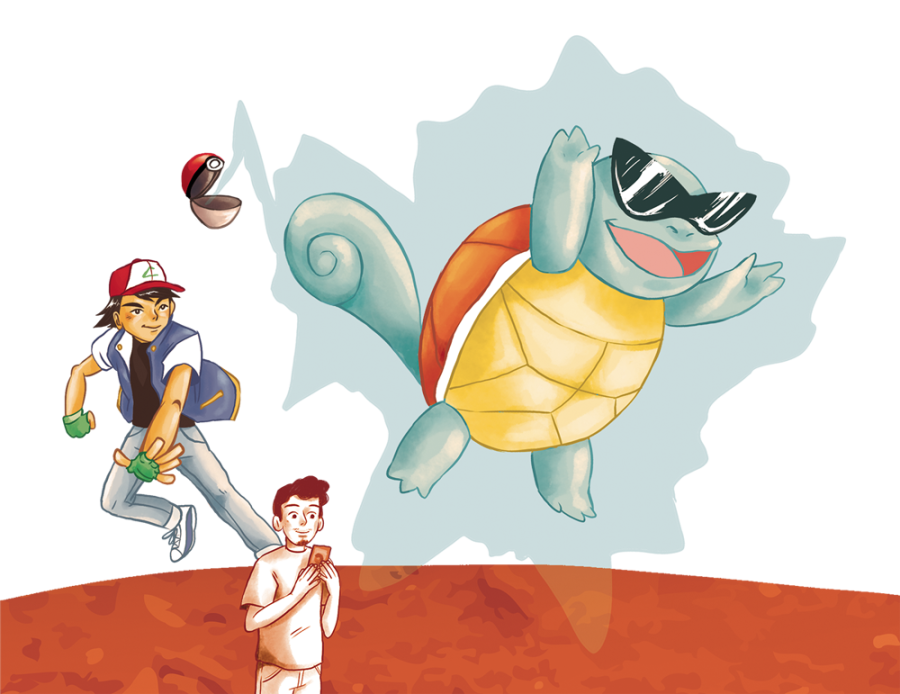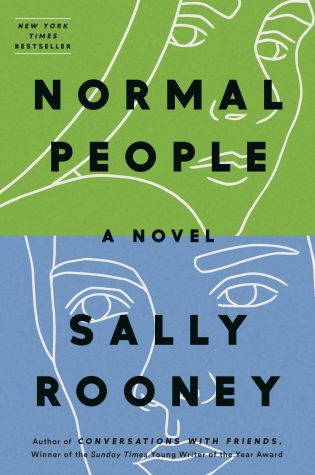Raised with the Pokémon
June 25, 2015
In less than a year’s time, the Pokémon franchise will celebrate its 20th anniversary. It is currently the second best-selling video game series of all time, just behind the Super Mario Bros., a series with more than 10 years of a head start.
Pokémon may still be pretty big nowadays, but it’s difficult to overstate the sheer prevalence of Pokémon in the late 90s and early 2000s. Back then it was visible everywhere.
I’ve never been one to make friends easily, but when the world of Pokémon opened up to me, it became a bridge that connected me to people I never would have bonded with otherwise.
— Kern Wallace
The core concept of Pokémon is simple. You play as a child who lives in a world inhabited by strange creatures who are the eponymous Pokémon. At the beginning of the game, you set off on a journey, capturing and battling Pokémon along the way, with two goals.
The first is to become the greatest Pokémon trainer in your region, by battling every trainer you come across. The second is to collect every Pokémon in existence in order to record them in the Pokédex, a sort of Pokémon encyclopedia.
In February 1996, Pokémon Red and Green versions were released in Japan. Its success seemed unlikely. It was a buggy game with bad sprite art developed for an aging system and utilized an accessory, the Game Link cable, which almost no other game else used.
At first it seemed doomed to failure and obscurity, with middling initial sales in a market where 80 percent of sales are made within the first two weeks. Nintendo of Japan wrote the games off as a loss. Instead, it defied all expectations by selling at a steady pace.
In 1999, when I was a young child, I won a prize in school for a minor competition. The prize I received was a card, blue in color with strange symbols on it and a picture of a small, light-blue turtle-like creature blowing bubbles into the air. The top of the card proclaimed its name: Squirtle.
At 6 years old, I was not fully aware of the context of this card, but it interested me enough that I knew that I wanted more. l went deep into the trading card game, collecting, trading, and battling with the cards, things I continue to do even to this day.
Within a year of my introduction to Pokémon, I found out that there was a TV show and I took many trips to the local video rental store to rent tapes, trying to assemble the chronology of the story in my head, because watching the episodes in order was nearly impossible because the tapes were constantly checked out.
On Christmas Day 2000, I walked down the stairs and found a Game Boy Color next to a copy of Pokémon Gold in the middle of the floor near the tree. My absorption into the world of Pokémon was complete.
A lot of my firsts came from Pokémon. It was my first trading card game, my first anime, my first video game, and my first fandom. My first and longest lasting friendship is partially fueled by our love of Pokémon. I’ve never been one to make friends easily, but when the world of Pokémon opened up to me, it became a bridge that connected me to people I never would have bonded with otherwise. It became a common language shared between my peers and me.
Pokémon can teach children lessons, just like it did to me. One lesson is that death is not something to be taken lightly. Unlike in some other games, when an opponent in the game defeats a Pokémon they are not killed, they are knocked out. This was a deliberate choice on the part of the series’ creator, Satoshi Tajiri, who didn’t want the children who played his games to have a cavalier attitude towards killing and death. Another lesson is that while some competition is healthy, being obsessed with winning and being strong isn’t.
After twenty years, Pokémon has become pretty firmly entrenched in our culture. It may no longer be as huge as it was in its heyday, but it is still strong. While I have other interests that have grown on me over the years, I will always have a special fondness for Pokémon and the ways it has influenced my life.
















